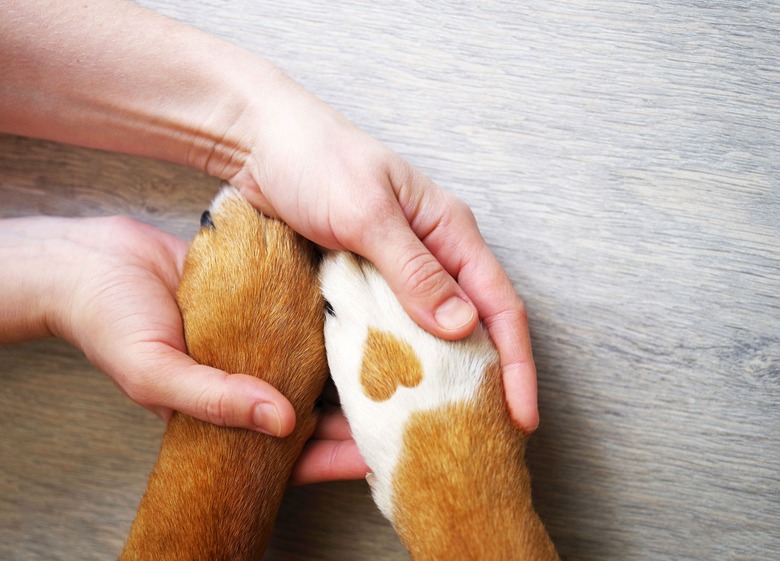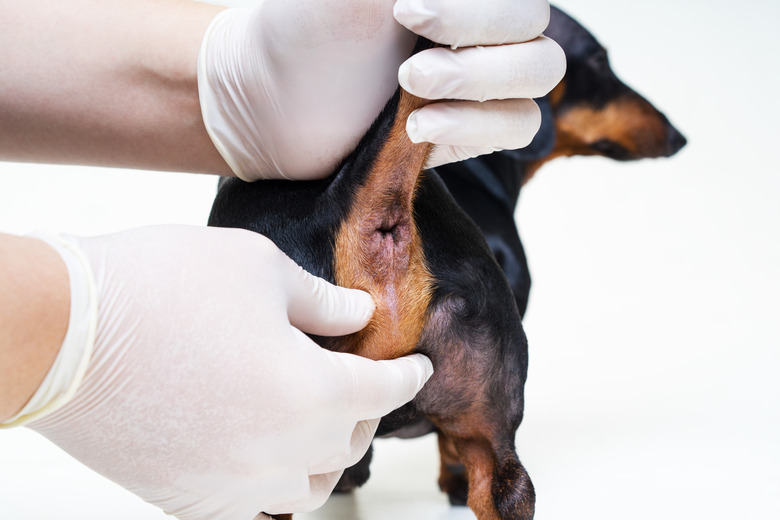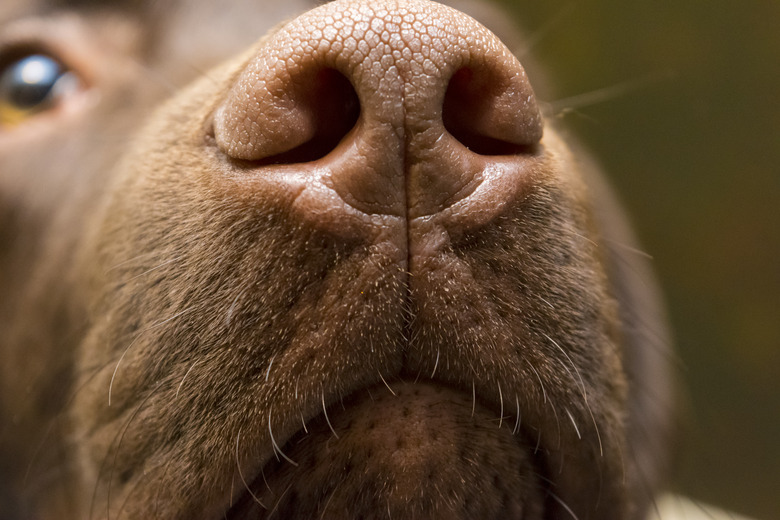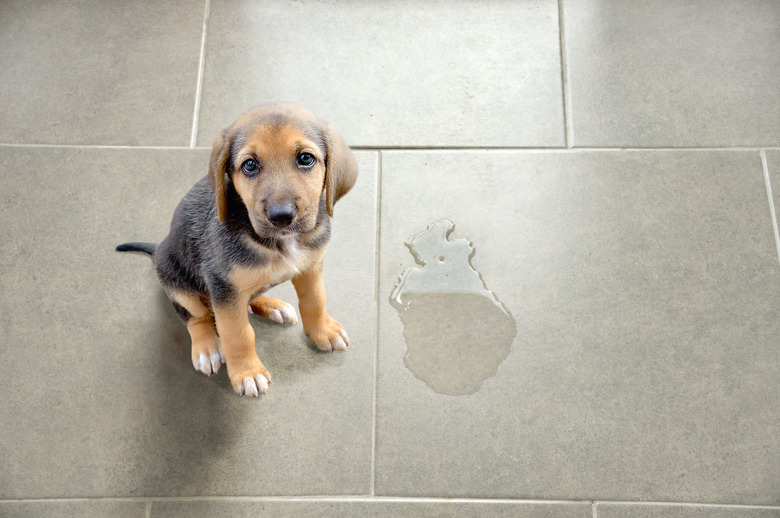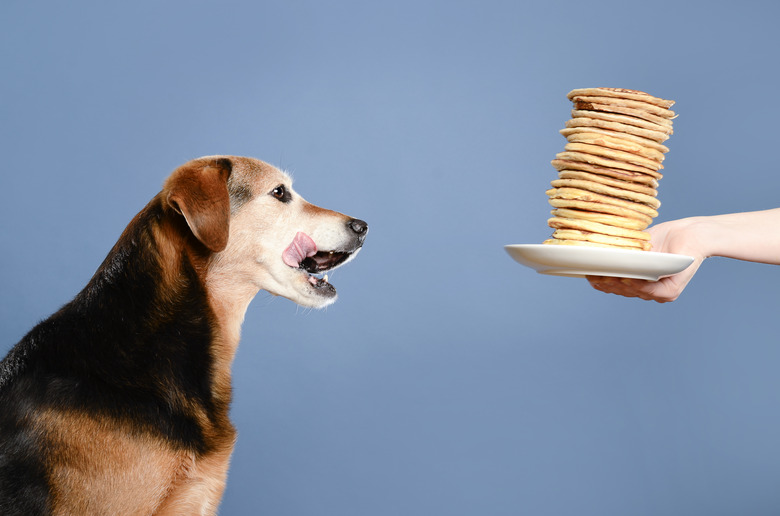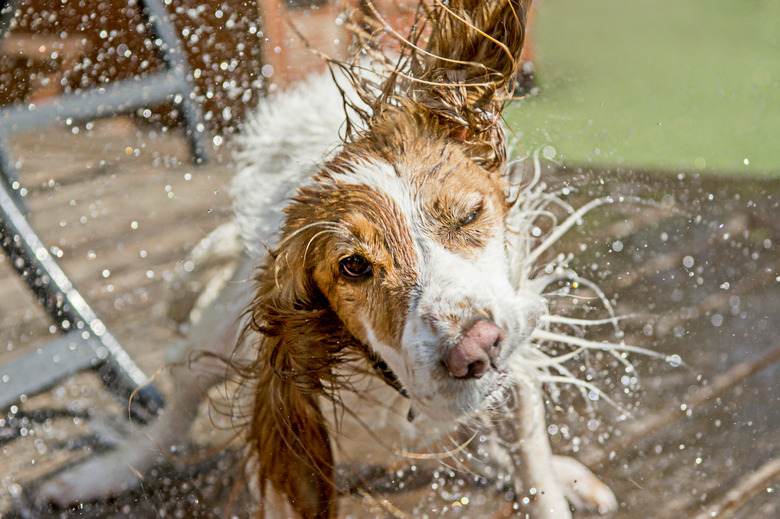The Complete Guide To Your Dog's Smells And What They Mean
Dogs are full of joy, enthusiasm, and, of course, smells. So. Many. Smells. But what do those smells mean? Which are normal, run-of-the-mill dog smells and which mean something is a little off? Here, we take a deep sniff and break down some of the most common smelly dog odors and what they mean.
Why do my dog's feet smell like Fritos?
Why do my dog's feet smell like Fritos?
Ah, Frito Feet. Sniff your pup's paws and you might notice a familiar, corn chip-y odor. If your dog's feet smell like Fritos, you might be wondering, you know...why? Turns out, this distinctive dog smell is caused by bacteria.
This sounds like a bad thing on the surface, but don't worry—it isn't necessarily a problem at all. See, dogs have a lot of sweat glands on their paw pads. Thanks to all of the fur that's also in the mix, paw pads' crevices are an ideal breeding zone for bacteria.
Some common puppy paw pad smell culprits include yeast and bacteria, like Pseudomonas, and Proteus. We all know that yeasty smell from bread, while Pseudomonas is often described as smelling like popcorn and Proteus is said to smell like corn tortillas. Combined, these bacteria create that Frito-y odor many dog owners notice.
It's worth noting that the corn chip or popcorn-y smell might not be limited to just the paw pads. Yeast-related skin infections can happen all over a dog's body, particularly in places with skin folds or places that are warm and potentially a little moist (in addition to paw pads, ears are another common problem area).
Why does my dog smell like fish?
Why does my dog smell like fish?
If your dog is emitting a distinctively fishy odor, you should look to their bottom for the source of the problem. Specifically, fishy smells can be a sign that a dog's anal glands are impacted.
The anal sacs are located under the skin on either side of the anus, that fill with fluid. Usually, this secretion is naturally released when a dog goes number two. Sometimes, however, this process doesn't occur naturally and needs a little help from pet owners. In this case, your dog's vet (or sometimes even his groomer) can help with manually expressing the anal glands. And don't worry that you've done something wrong if your dog does experience impacted anal gland issues—they can be caused by a whole range of things, from soft stools to just predisposition based on breed.
Why does my dog's breath smell like nail polish remover?
Why does my dog's breath smell like nail polish remover?
This is probably one of the more disconcerting smells your dog can emit and for good reason. This foul odor is nature's way of letting you (and your pup) know that something needs attention. If your dog's breath starts to smell like acetone (nail polish remover) or any other harsh, chemically scent, it could be a sign of diabetic ketoacidosis, a serious medical condition related to diabetes.
Dogs experiencing diabetic ketoacidosis may also exhibit other symptoms, including increased thirst, increased urination, vomiting, weight loss, dehydration, and even sudden blindness. That's why it's vital to get your dog to the vet right away if you notice a chemical smell on their breath.
READ MORE: How to Remove Tartar From a Dog's Teeth
Why does my dog's breath smell like urine?
Why does my dog's breath smell like urine?
Another scent dog owners sometimes notice on their pups' breath is ammonia—or, in normal people language, pee. It's never ideal if your dog's breath starts to smell more like something coming out of the other end, but in the case of a urine-like smell, it could also be a sign of kidney disease. Basically, if a dog's kidneys aren't functioning properly, they may start breathing out some of the ammonia as their body's attempt to get rid of the build up. Again, this is one of those health problems that calls for immediately medical attention and a trip to the vet.
Why does my dog's breath smell like garbage?
Why does my dog's breath smell like garbage?
People love to tease dogs for their bad breath, but healthy doggy breath isn't actually that bad, as any dog owner knows. If your dog's breath starts to truly reek—think garbage or sewer-level bad odors—it could be a sign that something is seriously wrong and they need more than just a good bath.
Possible causes of this especially foul-smelling puppy breath include dental and oral hygiene issues, like severe periodontal disease in their gums (which can lead to infection and tooth loss) and even more serious issues, like a tooth abscess or oral tumor. If your pup's breath starts to smell like something that belongs in a literal dumpster, schedule a vet appointment right away.
READ MORE: All About Dental Disease in Cats & Dogs
Why do my dog's ears smell like fruit?
Why do my dog's ears smell like fruit?
A fruity odor might seem pleasant, but if it's coming from your dog's ears, it could be a sign of an ear infection. If you notice this too-sweet scent coming from your dog's ears, look for other symptoms of an ear infection, including waxy, yellow, or reddish-brown ear discharge, hot or inflamed ears, scratching, or head shaking and call your vet for an appointment, just to be safe.
READ MORE: A Dog's Skin Care Basics
Why does my dog's breath smell like maple syrup?
Why does my dog's breath smell like maple syrup?
Some dogs have a naturally sweet scent, so if your pooch has had a syrupy scent since the day you met, it may be no big deal. If your dog develops a sudden and persistent maple syrup-like odor, however, it could be a sign of diabetes and definitely warrants a visit to the vet.
Why do wet dogs smell so bad?
It's commonly accepted fact that dogs don't smell their best when wet. Wet dog smell actually contains many specific scents. A British scientist found that the distinctive wet dog odor is actually a combination of almond, fruit, honey, and mushroom—along with feces and sulfur.
According to the American Kennel Club, wet dog smell can be attributed to the bacteria and yeast that are always present on pups. Basically, these micro-organisms leave behind micro-excretions, and when the dog gets wet, the moisture that evaporates up from the pup's skin contains some of these compounds, causing the stinky dog smell we all know so well.
Always check with your veterinarian before changing your pet's diet, medication, or physical activity routines. This information is not a substitute for a vet's opinion.
Conclusion
Dogs live life at eleven, and that means plenty of smells are bound to happen. But, if you notice a particularly strong or odd odor, a new odor, or bad smell that is accompanied by other symptoms, it could point to a dog health condition. Do your research and always call your vet for some expert advice, just to be safe.
